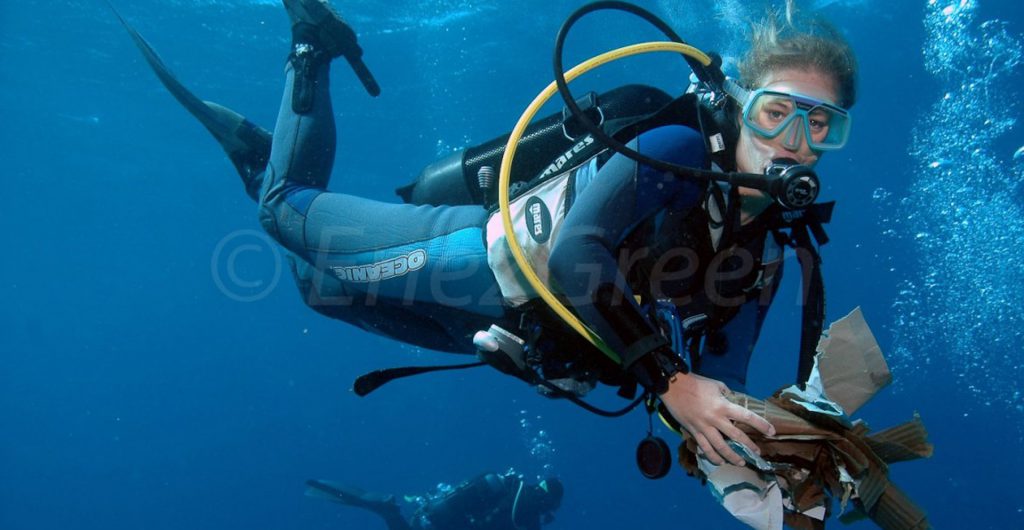Are divers irresponsible tourists or ocean lovers?
Divers often suffer from an image of irresponsible tourists who emit CO2 to travel by plane to distant dive sites, laying the anchors on coral reefs and seagrass beds, burning diesel fuel to reach the best spots, damaging the sea beds with their untimely fins, plunder archaeological sites or bringing species back to the surface…
Yet dives offer a unique access to an incredibly beautiful world that we discover weightless, adding a “magic” touch to this exciting underwater activity. Therefore facing the seabeds’ beauty , many divers are immediately aware of the urge to protect it. Most novices are rightly more concerned by their safety than by protecting this magical environment in which they dive and sometimes they are not aware of their negative impact on the marine ecosystems. Hence the importance of choosing the good diving centers and the supervisors and the accompanying divers or “buddy” that will guide and accompany you underwater. The ideal of course is to select the structure or guides that are involved in ocean conservation and affiliated with environmental NGOs such as Green Fins or Project Aware.
Green Fins Project Aware and trusted organizations to encourage divers to reduce their impacts on water
Green Fins is an organization sponsored by the United Nations Environment Programme (UNEP) which encourages dive centers and snorkeling operators, local communities and governments to work together to reduce their environmental impacts. As for Project AWARE Foundation, owned by PADI, the world’s first diving certification body, it brings together a growing number of divers to protect the oceans by sharing their experiences and advising divers. Here are a few : Dive local whenever possible, choose good spot for your anchor and avoid throw it on seagrass beds or coral reefs; DONIA is an ecofriendly app for Mediterranean boaters to help them choose the ideal anchoring spot thanks to 3D detailed maps of the seabed that appear on the screen in real time!
NGOs such as Longitude 181 Nature encourage member centers to adopt eco friendly practices and lead them to take actions such as organizing seabeds cleanups. Membership in organizations such as DAN Europe is also recommended to ensure his safety in any ocean and countries in the world and take part in improving research on hyperbaric medicine and therefore the overall safety of the divers. On websites like Vaima, it is possible to find new generation of nautical equipment manufactured in Europe, recyclable, which impact on marine environment is reduced such distress signals using electrolumiscent diodes to replace pyrotechnics orindependant rescue systems to limit costly sea research operations…
No diver is supposed to ignore the impacts he causes under water
Learn to control your buoyancy and your kicking to limit the damage as breakage of coral or sea fans’ branches that have taken years to build … Most of the time, divers are not necessarily aware of the harm of small incidents they provoked but this last ones have a real impact, especially when they are multiplied day long as the uprising of sediments covering small habitats like coral and reduce the efficiency of photosynthesis coral that can cause him to die. It can also lead to move small animals or to increase the chances of other larger predators. No behavior underwater is Innocent and no diver is supposed to ignore the impacts he causes around him. Similarly, the use of gloves is not recommended insofar as it prompts the user to touch the wildlife that it is strictly advised to touch only with the eyes, hence the saying ” take only pictures and leave nothing but bubbles behind you!”
Responsibility of divers extends to the surface where they can get involved with organizations working for ocean conservation, and preservation of that species, or that ecosystem, and document themselves in order to be more knowledegeable about underwater and to better appreciate next dives. Lovers of fish and seafood are also able to make the right choice for products regarding season, stock health, protected species or not…




